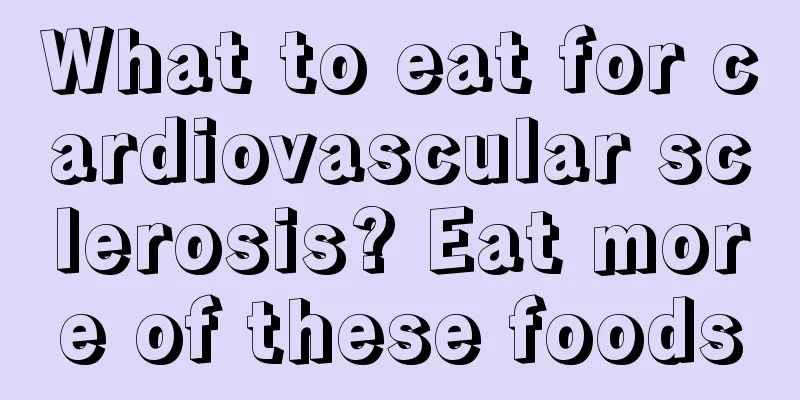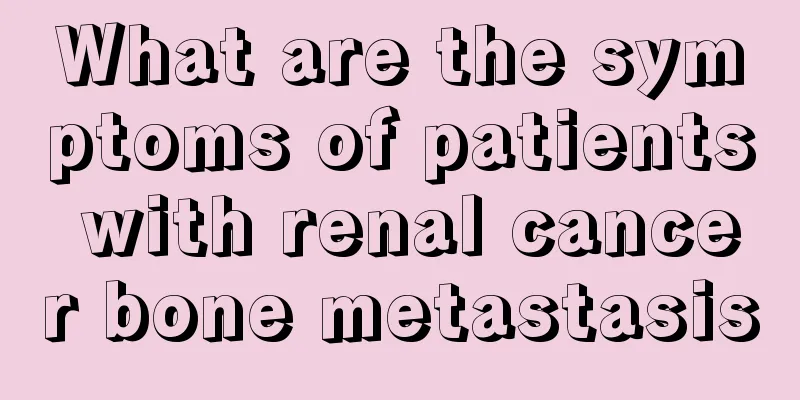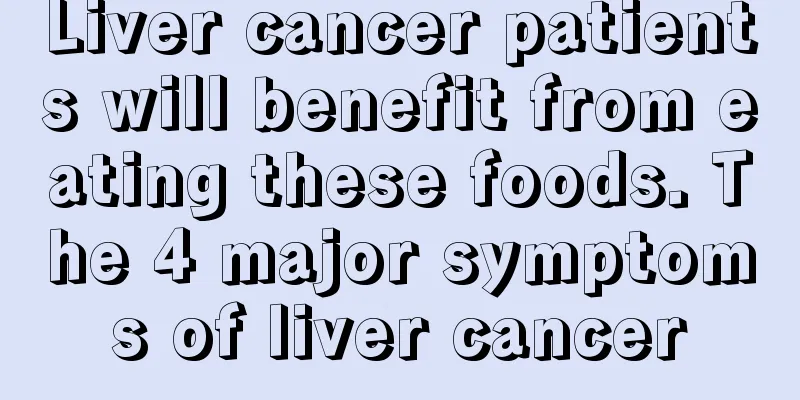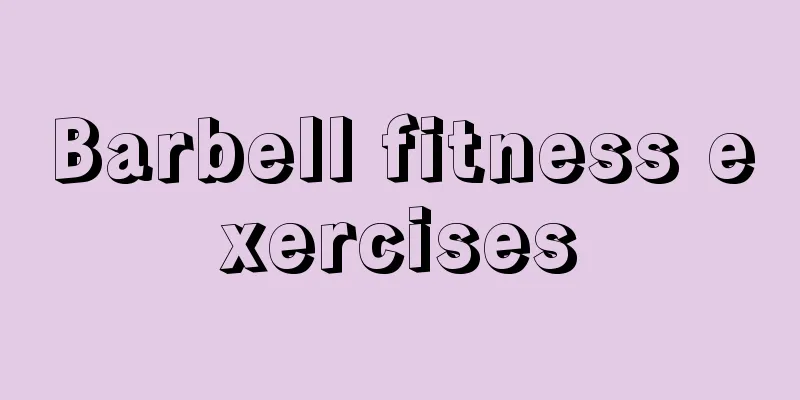What to eat for cardiovascular sclerosis? Eat more of these foods

|
Nowadays, more and more people are suffering from cardiovascular diseases. Cardiovascular sclerosis is very harmful to health. Middle-aged and elderly people in particular should pay attention to the prevention of cardiovascular diseases and eat foods such as onions, apples, garlic, etc. that are anti-cardiovascular sclerosis. 1. What to eat for cardiovascular disease 1. Onion: Contains a strong vasodilator prostaglandin A, which can dilate blood vessels, reduce blood viscosity and reduce blood vessel pressure. Onion also contains diallyl disulfide and sulfur-containing amino acids, which can enhance the activity of fibrinolysis and have the function of lowering blood lipids and resisting arteriosclerosis. 2. Garlic: Contains volatile capsaicin, which can eliminate fat accumulated in blood vessels and has a significant lipid-lowering effect. It is a good medicine for treating hyperlipidemia and arteriosclerosis. 3. Apple: Apple is rich in nutrients such as polysaccharides, fruit acids, flavonoids, potassium, vitamins E and C, which can break down fat accumulated in the body and have a significant effect on delaying and preventing the onset of atherosclerosis. 4. Marine fish: Fish contains a variety of unsaturated fatty acids essential to the human body, which can inhibit platelet aggregation and lower cholesterol. People who eat fish once or twice a week are much less likely to develop heart disease than those who do not eat fish. 5. Milk: It can effectively inhibit the activity of human cholesterol synthase, thereby inhibiting the synthesis of cholesterol and reducing cholesterol levels. In addition, the high calcium content in milk can also reduce the body's absorption of cholesterol. 6. Kelp: It is rich in taurine, which can lower cholesterol in the blood and bile; it contains the dietary fiber alginate, which can also inhibit the absorption of cholesterol and promote metabolism. In addition, the calcium in kelp can not only inhibit the absorption of cholesterol, but also lower blood pressure. 2. Nutritional elements for preventing cardiovascular diseases Eat more foods rich in arginine. Foods rich in arginine that replenish the kidneys and essence help regulate vascular tension, inhibit the synthesis of vasodilator factors that cause platelet aggregation - oxidative stress, and reduce vascular damage. This type of food includes sea cucumber, loach, eel, sesame, yam, ginkgo, tofu skin, sunflower seeds, etc. Sea cucumbers are rich in nutrients, including 18 kinds of amino acids (8 of which are essential amino acids); rich vitamins and minerals; and a variety of active nutrients, such as sea cucumber acidic mucopolysaccharides, sea cucumber saponins, sea cucumber lipids, sea cucumber collagen, taurine, SOD, glutathione, gonadal pigments, etc., which are of great benefit to the diet therapy of patients with cardiovascular and cerebrovascular diseases. Eat more foods rich in folic acid. If the diet lacks folic acid and vitamins B6 and B12, the level of homocysteine in the blood will increase, which can easily damage the vascular endothelial cells and promote the formation of atherosclerotic plaques. Folic acid supplementation plays an important role in reducing the incidence of coronary heart disease and stroke. Experts suggest that middle-aged and elderly people, especially cardiovascular patients, should pay attention to eating more foods rich in folic acid, such as red amaranth, spinach, asparagus, beans, yeast, apples, citrus fruits, etc. Eat more natural anticoagulant and passive lipid foods. Eating these foods can help reduce myocardial infarction and ischemic stroke. Black fungus, which inhibits platelet aggregation and prevents thrombosis, and pyrazine-containing substances such as garlic, onion, green onion, chrysanthemum, shiitake mushroom, asparagus, strawberry and pineapple also have a certain anticoagulant effect. Tomatoes, red grapes and oranges contain small amounts of anticoagulants similar to aspirin and salicylic acid. Passive lipid foods include spirulina, celery, carrot, hawthorn, seaweed, kelp, walnuts, olive oil, sesame oil, etc. |
<<: What should I eat if I have cardiovascular problems?
>>: What causes arteriosclerosis?
Recommend
How should patients with cardia cancer regulate their diet? What should patients with cardia cancer eat to supplement nutrition?
After suffering from cardia cancer, you should ea...
Do you know about the harm of ozone to human body?
When ozone is not destroyed, it has many benefits...
What are some quick ways to remove acne marks?
During the period of people's growth, there i...
How to use the pelvic floor muscle rehabilitation device
After giving birth, a woman's body bones will...
What are the symptoms of pregnancy for men and women at two and a half months?
When the pregnancy is two and a half months, the ...
Blood test for three stomach items
Some patients have poor gastrointestinal function...
How long does it take for cervical cancer to kill someone
In our lives, we often ignore our own health prob...
What causes peeling feet?
Many people are more likely to encounter the prob...
When will wisdom teeth grow?
In fact, there are certain differences in the age...
Will I get sick if I stay alone for too long?
Some people may like a quieter life, so they like...
Seafood clay pot rice recipe
There are many varieties of clay pot rice, and se...
What are the effects and functions of white chalcedony?
There are many types of chalcedony, including whi...
What are the methods for controlling whiteflies?
Whitefly is actually the small white moth we see ...
Taking this medicine can quickly relieve seasonal rhinitis
Seasonal rhinitis is a common type of rhinitis. I...
Is a milk warmer useful?
As modern people pay great attention to the healt...









